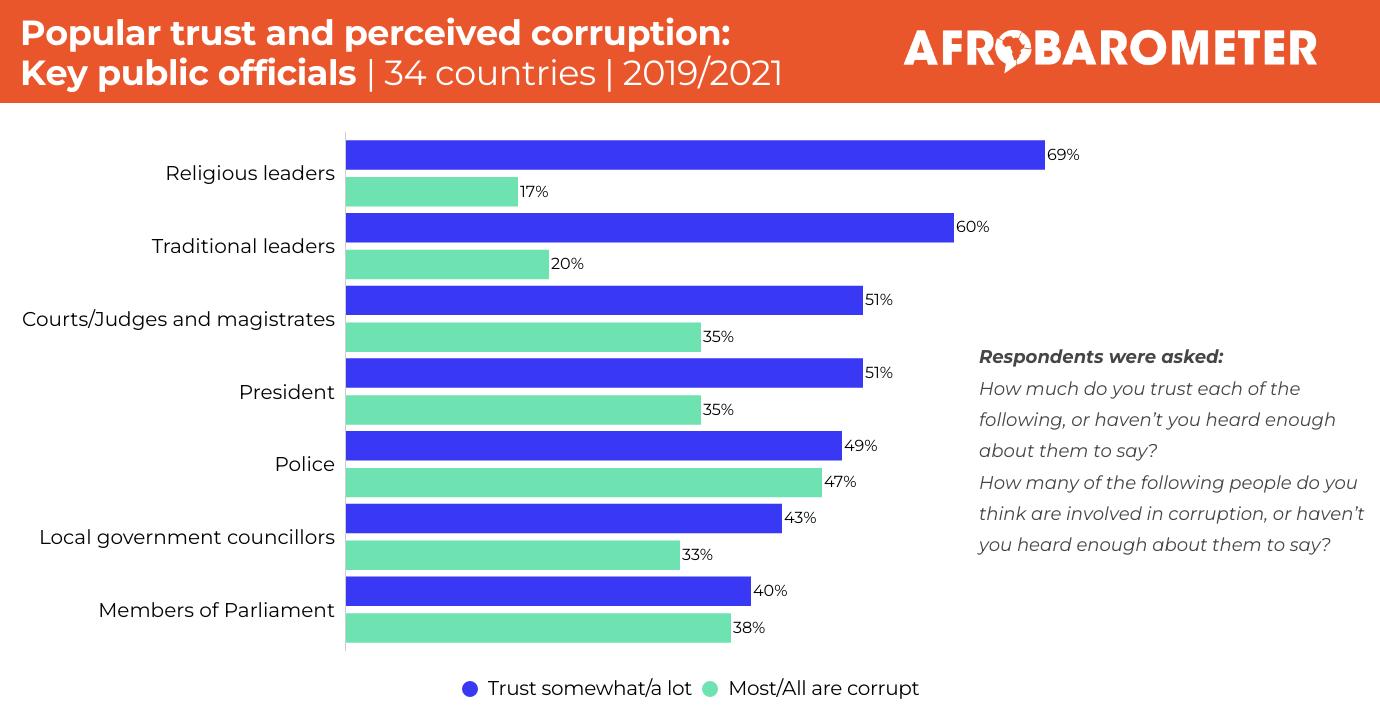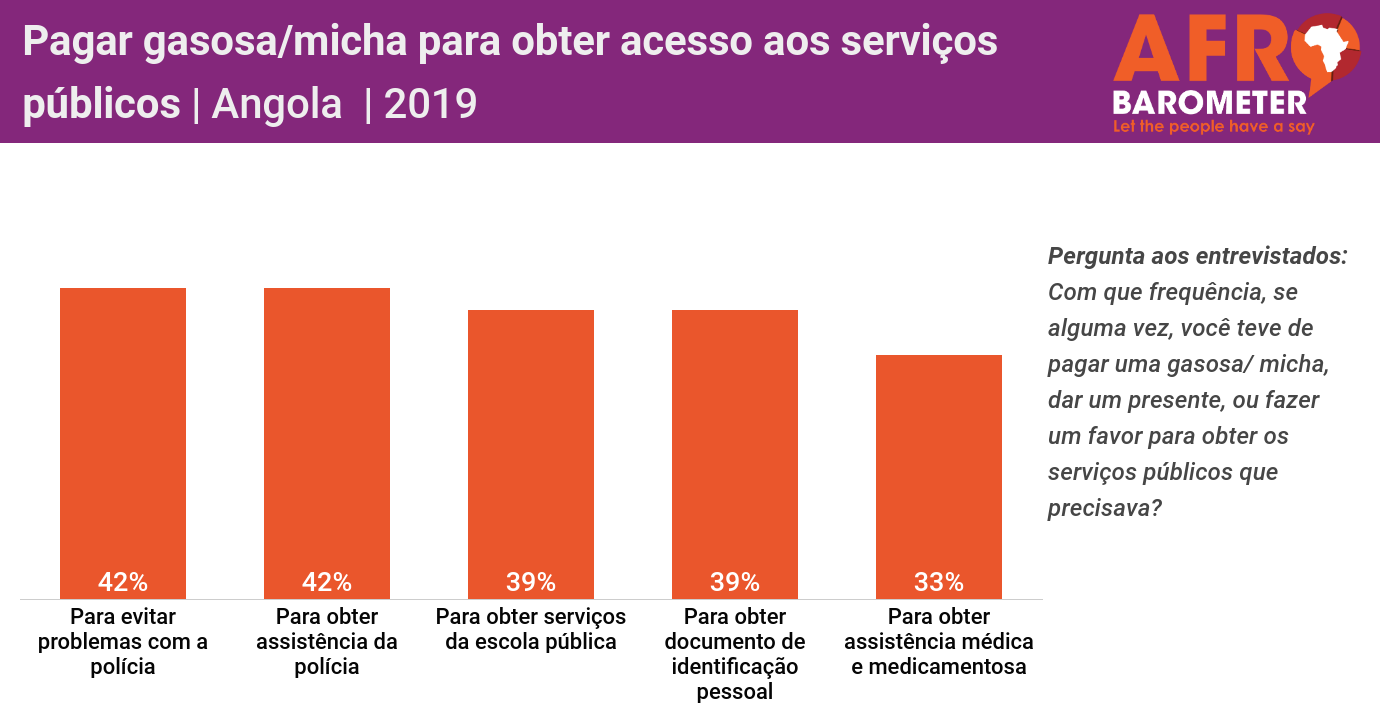- Most Africans (95%) identify with a religion. On average across 34 countries, more than half (54%) say they are Christian, while 36% identify as Muslim, 4% say they belong to other religions, and 5% identify with no religion (Figure 1).
- Religious leaders are more widely trusted and less widely seen as corrupt than any other group of public leaders the survey asked about (Figure 2).
- Fewer than half of Christians and Muslims (46% each) said they were “somewhat likely” or “very likely” to try to get vaccinated. A larger share (54%) of respondents who identify with other religions or no religion indicated that they were likely to do so (Figure 8).
- Africans overwhelmingly express tolerance for people from different religious backgrounds. On average across 34 countries, almost nine out of 10 citizens (88%) say they “would strongly like,” “would somewhat like,” or “would not care” if they had neighbours of different religions, including strong majorities in all surveyed countries (Figure 14).
- Africans overwhelmingly express tolerance for people from different religious backgrounds. On average across 34 countries, almost nine out of 10 citizens (88%) say they “would strongly like,” “would somewhat like,” or “would not care” if they had neighbours of different religions, including strong majorities in all surveyed countries (Figure 14).

Around the globe, some religious leaders have won praise for fighting COVID-19 (U.S. Department of State, 2021; World Health Organization, 2020), while others have drawn criticism for helping the pandemic to expand (Lee, Lim, Xavier, & Lee, 2022; Maina, 2022). Both reactions reflect the power that religious leaders wield, highlighting their ability to influence the behaviour of billions (Blevins, 2020; Network for Religious and Traditional Peacemakers, 2021).
In Africa, citizens’ voices confirm this power. Findings from national surveys in 34 African countries in 2019/2021 show that adults overwhelmingly identify with a religious faith, and they are far more likely to trust religious than political leaders. Religiosity and views of religious leaders have important implications for many aspects of life, from the day-to-day practice of social tolerance to how communities respond to a global health crisis.
Based on interviews in 15 countries surveyed during the pandemic, popular views related to COVID-19 suggest that religious leaders still have considerable room to make a difference if they choose. Fewer than half of both Christians and Muslims indicate they are likely to try to get vaccinated, and a majority of all adults think that prayer is more effective than a vaccine in preventing COVID-19 infection, a belief that makes them less likely to say they will get vaccinated. But popular trust in religious leaders means that they could likely use their influence to increase vaccine receptivity.
In fact, those who say they trust religious leaders are already somewhat more likely to trust the government’s ability to ensure that vaccines are safe, and less likely to say they will not get vaccinated, suggesting that religion and public health needn’t be rivals for people’s convictions.
On questions of religious tolerance and freedom, Africans overwhelmingly express welcoming attitudes toward people from different religious backgrounds, and most say that religious, ethnic, and racial diversity strengthen rather than weaken communities. Even so, findings show that religious discrimination by the government and other citizens still occurs.
Related content

